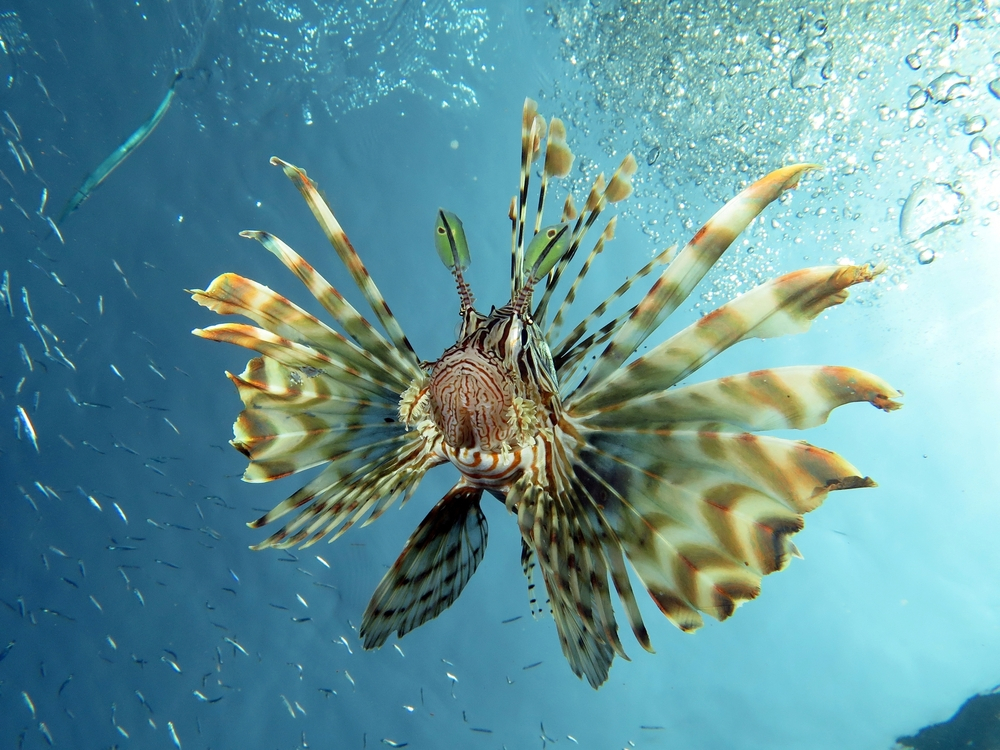
The lionfish—a beautiful, but dangerous and potentially deadly creature—has entered the waters of the Mediterranean, marine biologists are warning, and conservationists are deeply concerned about the impact the invasive and voracious species will have on the sea’s natural ecosystem.
Also known as the Devil Firefish, the ornate and colourful lionfish bristles with barbs which pack a poisonous punch that’s potentially deadly to predators, and is strong enough to kill humans. To be precise, the fish are venomous rather than poisonous. They boast venomous dorsal, pelvic, and anal spines that, if you’re foolish or unlucky enough to come into contact with them, can deliver a powerful neurotoxic liquid through a painful puncture wound. Deaths are very rare, but stings are agonising and the toxin commonly causes vomiting and respiratory paralysis in survivors.
The International Union for the Conservation of Nature (UICN) raised the alarm this week, after lionfish were spotted around the coastline of Turkey, Cyprus and in the waters of the eastern Mediterranean. ‘That shows that the fish is spreading, and that’s a cause for concern,’ the UICN’s Maria del Mar Otero told the press.

Lionfish, which are native to the Indo-Pacific region, are popular with tropical aquarium owners because of their vibrant colours and exuberantly decorative appearance. It’s proven to be a proper pretty pest, however, having caused havoc in the Caribbean and parts of the Atlantic after being accidentally introduced in early 1980s.
Now very much at home in the Caribbean, a slow-moving but nonetheless devastating army of lionfish have proceeded to invade the Gulf of Mexico, the northern coast of South America and now, apparently, the fragile Med.
Their deadly defenses mean that even sharks have learned to leave the flamboyant interloper alone, and with no natural predators, the lionfish are decimating local fish stocks which normally regulate algae and keep reef-dwelling flora and fauna happy. As a result, the marine life and coral environments in these regions are being destroyed.
The lionfish problem is so bad that finding a solution was top of the agenda at the Association of Caribbean States‘ summit this month. Cuba recently introduced an annual fishing tournament specifically targeting the species, and the country—along with Columbia and the Bahamas—are now desperately encouraging locals to eat the fish, which is considered a delicacy in Japan.
If the Caribbean experience is anything to go by, lionfish and chips is a dish that more holidaymakers might be seeing on menus around the Med before long.
